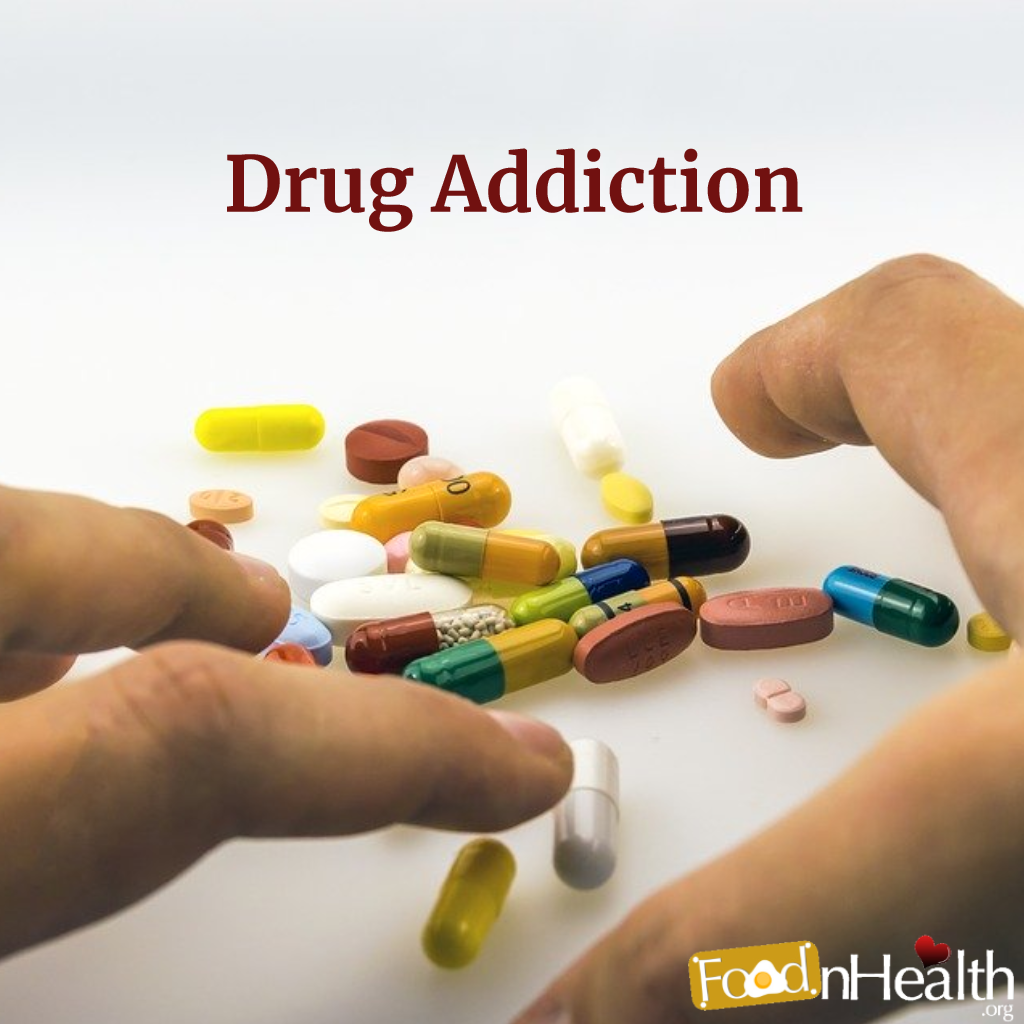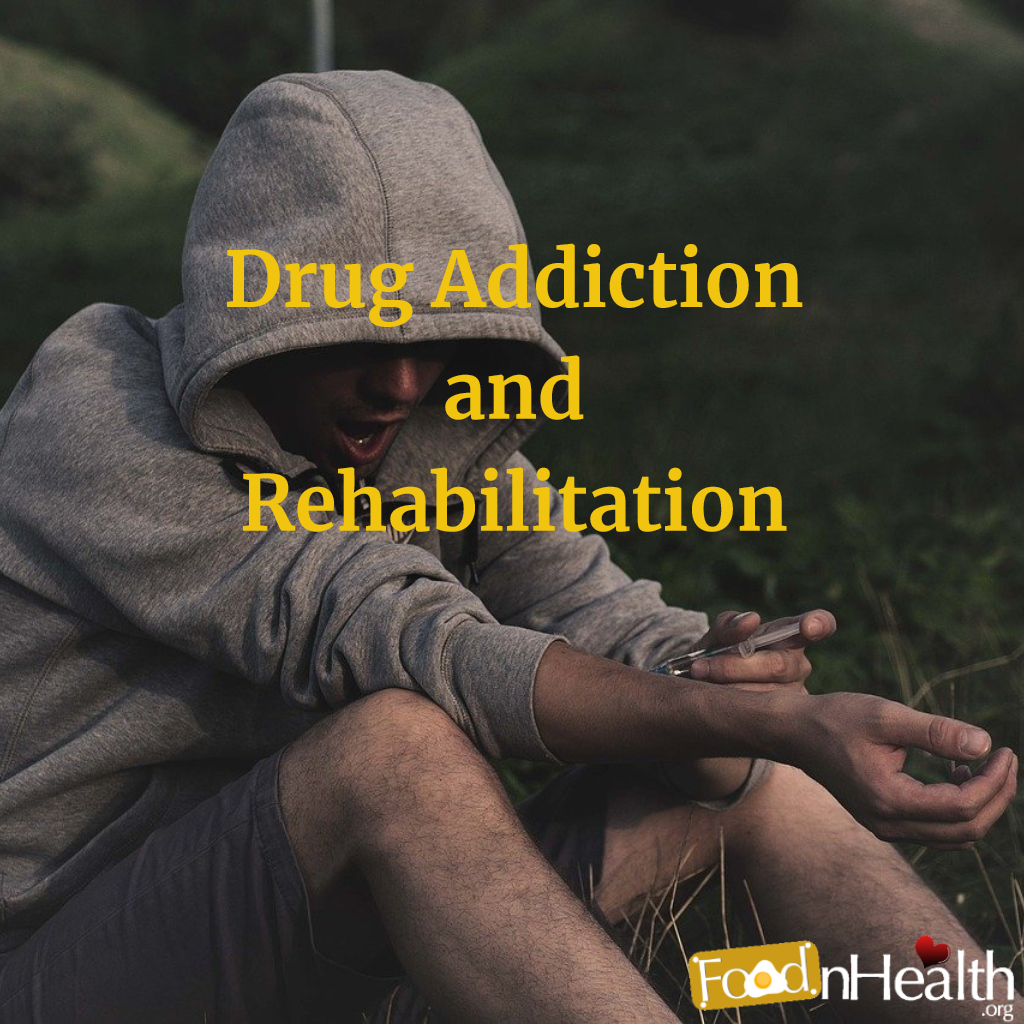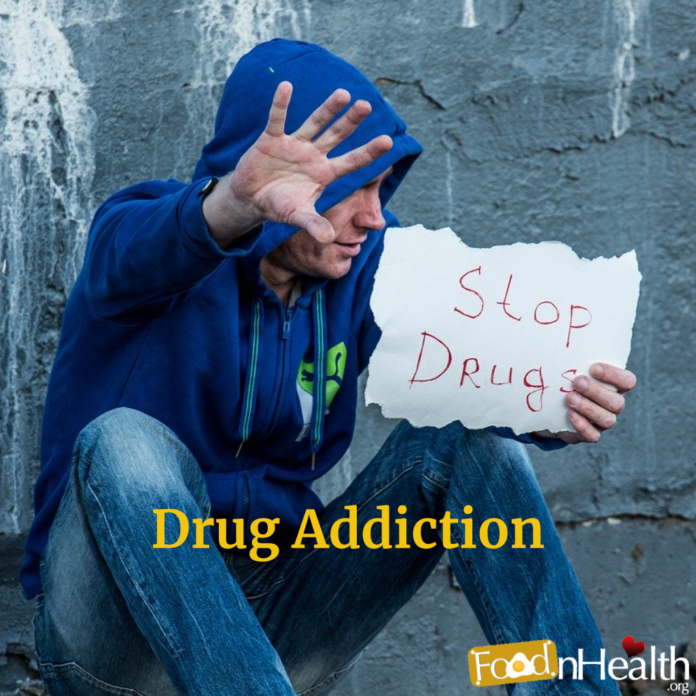What is Drug Addiction?
Drug addiction is a chronic disease. It is characterized by a compulsive behavior of seeking and using drugs. This is despite the harmful consequences caused by drug addiction.
These can have effects in the brain, some may be long-lasting. The changes in the brain can lead to harmful behavior.
How does drug addiction begin?
Drug addiction usually begins with the voluntary act of using drugs. It may start from even a few doses. Sometimes, peer pressure brings about taking drugs.
Over time, the ability to choose not to take drugs can become compromised. A person becomes compulsive in seeking and taking in drugs. This is due to the effects of long-term exposure that affects brain function.

Sad to say, addiction affects parts of the brain. These parts are those involved in reward and motivation. These also are the parts that relate to learning and memory. Another part of the brain affected is control over behavior. Drug addiction is a disease that affects both the brain and behavior.
Drug Rehabilitation
Drug addiction is a serious case that needs immediate attention. One big help comes in the form of drug rehabilitation.
Drug rehabilitation is a process that involves medical or psychotherapeutic treatment. The goal is to reduce dependency on addictive substances. Examples are alcohol and prescription drugs.

Though it may not be easy, drug addiction is treatable. Drug addiction is a chronic disease. As such, complete recovery cannot happen over a few days. Most addicts need long term repeated therapy and care to recover.
Options in treating drug addiction include:
- behavioral counseling
- medication
- medical devices and applications that help treat withdrawal symptoms
- skills training
- evaluation and treatment for mental health issues, such as depression and anxiety
- long-term follow-up to prevent relapse
Extra follow-up treatment is also done after rehabilitation. This is to help the patient fully stop using drugs, stay drug-free, and be more productive.
A tailor-fit program for recovery and follow-through are crucial. Rehabilitation should include medical and mental health services. Follow-up should include family and community-based recovery support systems.
Types of Drug Addiction Treatment
Residential treatment – This involves living inside a facility. This is to get away from family, school, work, and friends. The residential treatment gets the patient away from the environment and the factors that trigger addiction. Inside this residential facility, the patient undergoes intensive treatment. The length of stay depends on the case of the patient.
Day treatment or partial hospitalization – This is for those who need medical monitoring. The patients go to the hospital or treatment center during the day. They return and sleep at their homes.
Outpatient treatment – This is a not long-term live-in treatment. The treatment works around the schedule of school or work. it is also a daytime treatment. Patients also go home to sleep at night. Relapse prevention is the usual focus of this type of treatment.
Sober living communities – This is living with other fellow recovering addicts. This is in a safe, supportive, and drug-free environment. Patients undergo intensive treatment programs. This arrangement is for those who have no other place to go. In this case, patients worry that going home can make them go back to addiction.
Drug Rehabilitation Center
A drug rehabilitation center provides therapy for those struggling with drug addiction. A drug rehabilitation center aims to transform lives to get back to their old normal ways. The center aims to give psychological and medical treatment.
A rehabilitation program gives a structured plan. The patients undergo behavioral therapy. The center helps the patients try to learn new skills. This is to help patients divert their attention. These also help them become sober.
There are many treatment models and therapies adapted by a rehabilitation center.
What is the cost of undergoing rehabilitation?
The cost depends on several factors. One major factor is if the rehabilitation center privately or publicly-funded.
The facilities and programs also affect costs. The length of stay is also a factor for the cost of undergoing rehabilitation. Recent studies or show that 66 days tends to yield habit change. This is compared to 28 days or less.
Considerations in choosing the right Rehabilitation Center
- Check out the credentials and reputation of the center. This includes the qualifications of the staff.
- Know who will be doing the counseling.
- Research and see reviews online. Make sure the reviews are positive and authentic.
- Visit the center to also see the level of professionalism of the staff.
Other Questions to Help You Decide
- Does the center feel warm? Or the area feels more like a prison? How are the patients treated?
- Can you contact former patients for a backcheck and interview?
- What results do you expect? Are they aligned with how the center treats its patients?
Get a Reputable Rehabilitation Center
If you are looking for a reputable Rehab in Bali, visit Calm Rehab. Our team includes professionals and experienced. Our competent and qualified staff are from Australia, the UK, Singapore, and Indonesia. All our staff shares the passion to help our patients overcome drug and alcohol problems. We aim to help them reconnect with themselves.
We support individuals with a treatment that is multi-faceted in approach. We incorporate various well-tested therapies. We believe in a balanced and enjoyable approach.
We also offer a range of leisure and healthy activities. These help our patients rest, recover, and make way for lasting life changes. For more information about our programs at Calm Rehab, visit our site.


























